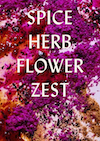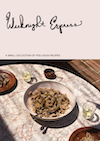I started cooking Persian New Year Noodle Soup (Ash Reshteh or Ash-e Reshteh) regularly sometime around 2010. Kate, a friend (and longtime reader of the site), told me the bookshop she works at (in Australia) hosted Greg & Lucy Malouf as they were promoting their book Saraban: A Chef’s Journey Through Persia. She told me to look for the book in the U.S. because she suspected I would enjoy it. Kate knows her cookbooks. I quickly tracked down the book and this, the Ash Reshteh (New Year Noodle Soup), was the first thing I cooked from it. Completely blown away, I was convinced it was the best thing to come out of my kitchen in years, and I’ve cooked it dozens of times since.
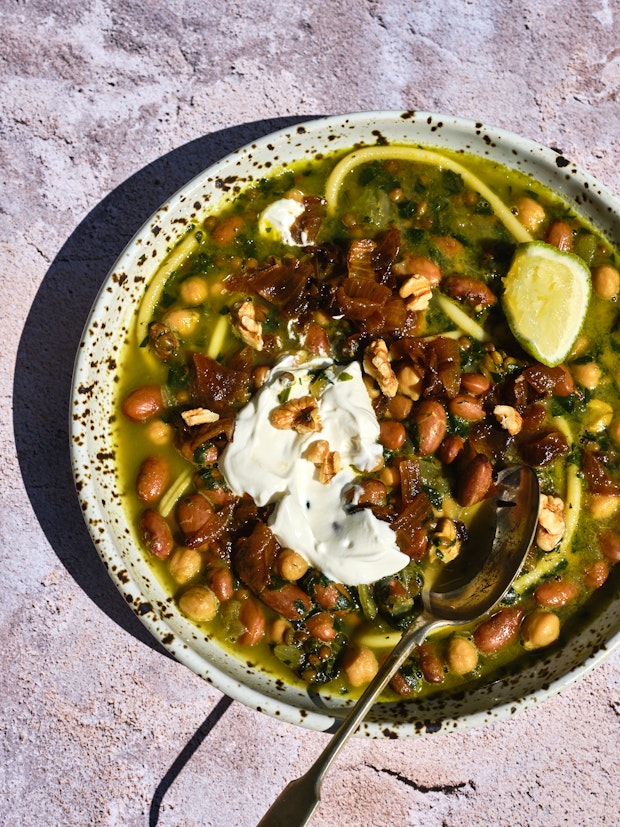
Ash Reshteh (Persian New Year Noodle Soup): The Details
Traditionally, this is a preparation associated with Persian New Year (Nowruz) but there is a long list of reasons I like to make it more often. In Persian culture, the new year is an opportune time to wrangle the “threads” in your life, and to set intentions and direction for the year ahead. That’s where the noodles come into play here. At its core this is a fortifying, nutrient-dense bean and noodle soup featuring thin egg noodles swimming in a fragrant broth spiced with turmeric, cumin, fresh chile, and black pepper. You use a medley of lentils, chickpeas, and cranberry beans to create a soup that is hearty and filling without being heavy. You add spinach, dill, and cilantro. You add lime juice for a bit of sour at the end. And then you prepare a number of toppings to add when you serve the soup – chopped walnuts, deeply caramelized onions, and sour cream (kashk). It’s a formidable ingredient list, but results in hearty bowls of, arguably, one of the world’s great soups.
The Ingredients:
A few notes related to shopping for ingredients.
- Beans & Lentils: There are three types in this soup: borlotti (or cranberry beans), chickpeas, and lentils. They all have different cooking times which can be a bit of a pain. If I don’t have any beans pre-cooked in my freezer, I cook the cranberry beans from scratch, use canned chickpeas, and cook the lentils with the soup broth because they’re relatively quick to cook. I’m definitely a hard pass on canned lentils.
- Stock/Broth: For this recipe I like to use water plus 2 tablespoons of this homemade bouillon powder to make my broth. Or you could do it with whatever bouillon you keep on hand. In general, stay clear of carton vegetable broths that have a lot of tomato or assertive vegetable flavors. You’re probably better off with water and can make adjustments from there if needed.
- Noodles: I’ve played around with a range of noodles here over the years. I love to use thin-ish egg noodles, but the Persian grocer near me only stocks a generic sampling of spaghetti and vermicelli, so that’s where we landed the last time around. Andy Baraghani uses linguine in his wonderful version.
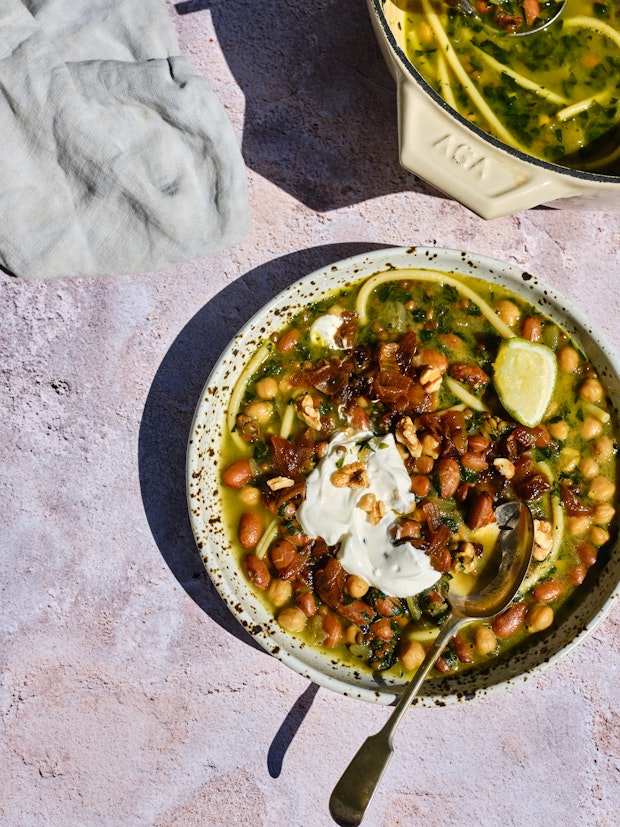
Persian New Year Noodle Soup: The Game Plan
Making Ash Reshteh can be relatively low lift if you do a bit of pre-planning. Making a couple of the components ahead of time, mostly passively, helps everything come together smoothly.
- Make Ahead: Beans – The next time you cook borlotti or cranberry beans, make double and freeze them in sandwich-sized baggies. Same goes for chickpeas. Although, I tend to just grab a can of those off the shelf for this soup. The day you want to make this soup, you’re ready to go with fully cooked beans. Check.
- Make Ahead: Caramelized Onions – Make the caramelized onions up to a few days prior. In fact, make triple the amount if you’re up for it. That way you have special onions to top the soup, AND pizza, pasta, or whatever sandwiches you might be throwing together. Keep the a jar in your refrigerator and bring up to room temperature before serving, so you’re not putting a cold topping on a hot soup.
- Make Ahead Walnuts: Toast the walnuts up to a few days ahead of time.
Leftovers:
There are rarely leftover noodles, but usually there is enough broth, beans and lentils for great leftovers. I love to serve it over rice for lunch – loaded with toppings, of course!
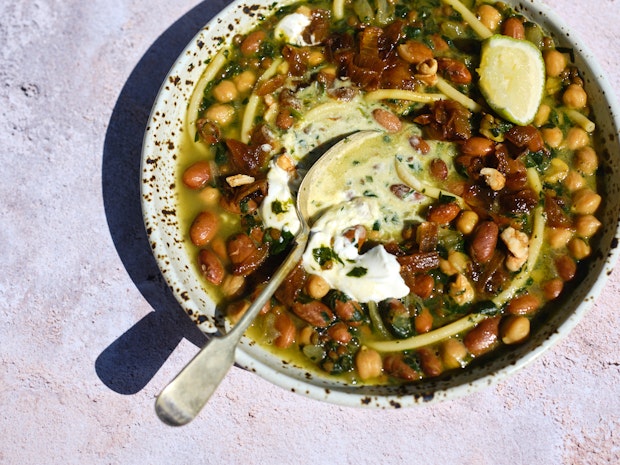
Further Reading & Other Versions of Ash Reshteh:
Some of my favorite meals over the past few decade have been Persian or Persian-inspired. I love the abundant use of herbs, and color, and texture all rooted in traditional preparations. At one point I signed up, on a whim, for a brunch hosted by Komaaj in San Francisco, this was years ago. The food explored the ingredients and flavors of Northern Iran. It was regional Iranian, the menu happened to be vegetarian, and every bite was special. If you are interested in taking a deeper dive, or other versions of Ash Reshteh, here are a few suggestions.


